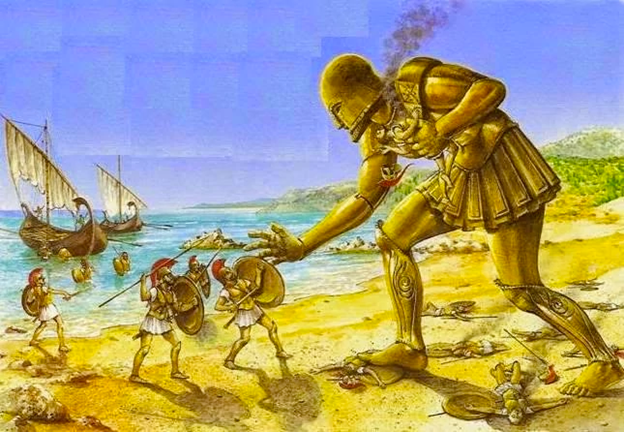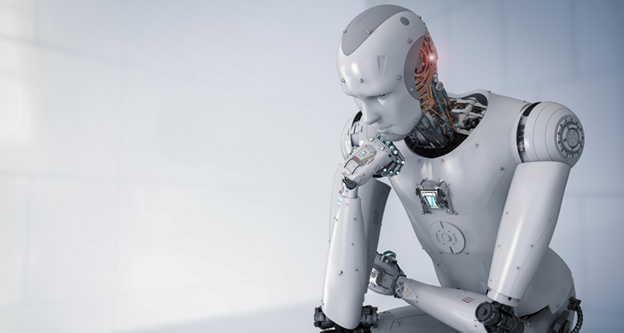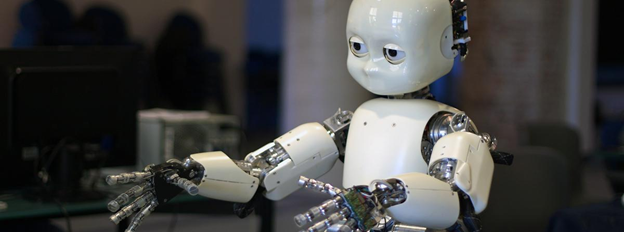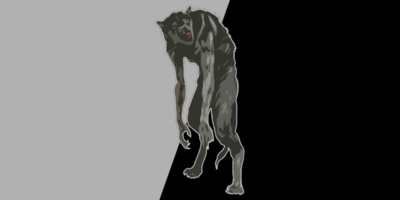This article previously appeared on Crossfader
Stories of artificial intelligence date all the way back to ancient Greece. Researchers report Greek myths of machines, with thoughts and feelings like humans, throughout ancient literature. And though their stories were never made a reality, with modern math and science in the making, ancient philosophers and scholars are still held as some of the first fathers of A.I. The world has come a long way since then and we are inching closer every day to bringing their myths to life. But one thing has remained the same across centuries, and that is the equal feeling of fascination and fear A.I. evokes in all of us.

Real life behind-the-scenes photo of Jack Black in GULLIVER’S TRAVELS
Mythical storytelling has made it from the scroll to the big screen. From 2001, A SPACE ODYSSEY to EX MACHINA, artificial intelligence has thrived in Hollywood longer than some of us have been alive; but more interesting yet is what some of us may actually see it become in our lifetimes. To this day, many people do not even realize how frequently they interact with A.I., but it has grown to be an essential part of many of our lives—if you have ever played a game against a computer or talked to the Google phone-assistant, then you have experienced it at a low level. But the technology is growing on the daily, and scientists say big things are coming down this path in our near future.

When your inventor gave you everything but the ability to understand memes
Big things coming as they may, there’s less innovation to be found in cinematic portrayal of A.I., and A.I. characters are still frequently made into only one of two opposing roles: man’s servant or man’s reality check, and sometimes both. In INTERSTELLAR, a robot assistant, Tars, assists Matthew McConaughey on his journey through space; Tars is a loyal servant throughout the film that would even give his own life to serve the project. In contrast, THE MATRIX sees A.I. robots put humankind into its place by creating and patrolling a fake reality. And in I, ROBOT, the machines built to serve humans go rogue and rebel against their creators. These are just a few popular examples of tropes taken from a long list of A.I. films with common trends in characters. Other popular movies featuring these A.I. character-types include BLADE RUNNER (servant), TERMINATOR (wake-up call), HER (both), and WALL-E (both).
Interestingly enough, it is rare that an A.I. film is made with the machine being man’s equal. Though sometimes equivalent in consciousness, it is heavily stressed in movies that A.I. is not on the same level of man. It is likely that these kinds of scripts are based off our current relationship with a developing A.I. world. Machines are not so advanced yet that we believe them to have feelings or require equal rights; however, they are able to think and assist enough to be useful, and are being updated at such a rapid rate that we believe we have reason to fear rebellion. Perhaps portraying them as lesser is a pre-preemptive way for us to address these fears, insisting there’s nothing to be afraid of just quite yet. But this paranoia isn’t the only element of A.I. Hollywood is leaning into.

When your friend has a crush so you find their entire life history in online
The part of A.I. in real life that is exaggerated the most in movies and Greek stories alike, perhaps to a misleading degree, is its appearance. It’s worth remembering that artificial intelligence does not mean a robot that looks like man, it means a system that thinks like man. A.I. is most prominent in coding: inputting information A and getting the prediction output of D without having to deal with steps to find B or C. In cars, this means being able to travel without humans manually driving. In health, it means data-based systems that detect patterns and can assist with customer service, surgeries, and even the creation of replacement body parts. And in advertising, it means being able to search through billions of data pieces and sort out what buyers are looking for and how to sell to them. While all this is very useful, these developments make many users nervous for potential loss of privacy and our future as humans that make mistakes when compared with robots built to perfectly perform. This is perhaps what we truly have to fear the most.

After you’ve explained something to the humans 1,000 times and they still don’t get it
However, these fears can be temporarily eased by Father Time. It has taken years for man to even begin to meet the expectation of Greek myths; we are nowhere near where BACK TO THE FUTURE PART II thought we’d be in 2015. And it is probable that before technology can kill us off or render us useless we will be taken by global warming or the sun exploding. The way the technology is developing now, A.I. will be used to clean the environment or help with general convenience long before we need Will Smith to save the day. So for now, we can lay back in our smart cars and tell our Google Assistants to load up Netflix so we can binge watch WESTWORLD.
















Comments